Are you an ardent hiking fan but find yourself scratching your head about the kind of food and nutrition to pack for the trail? Believe me, you’re not alone. It’s a puzzle many backpackers come across, trying to balance the need for carbs, proteins, and fats to keep energy levels high.
This blog post is here to masterfully unravel that mystery with 15 all-encompassing tips – from mapping out meals and selecting lightweight yet nutritious grub – right down to meal recipes and savvy food storage methods for successful hiking adventures.
So go ahead, dive in – delectable trails are waiting just around the corner!
Key Takeaways
- Proper hiking food and nutrition are essential for fueling your body, maintaining energy levels, and sustaining endurance on the trail.
- It’s important to balance macronutrients (carbs, protein, fats) and stay properly hydrated while hiking. Carbs provide quick energy, protein aids in muscle repair, and healthy fats contribute to sustained energy.
- When planning backpacking meals, choose lightweight and nutrient – dense foods like seeds/grains, dried snacks (jerky/trail mix), and nonperishable items (canned tuna/beans).
- Meal prepping/portioning can save time on the trail. Dehydrating your own meals allows for easy cooking and customization of ingredients according to personal dietary needs.
- Use odor – proof storage options to prevent attracting wildlife while camping/hiking. Organize food for easy access on the trail. Adhere to Leave No Trace principles when disposing of waste.
- Following these tips will help you have a successful hiking adventure with proper food/nutrition that keeps you energized throughout the journey.
Importance of Backpacking Nutrition
Proper backpacking nutrition is crucial for fueling your body during hikes and maintaining energy levels. It involves ensuring you are properly hydrated, balancing macronutrients, and choosing foods that provide necessary nutrients for sustained endurance.
Fueling your body for hiking
Fueling your body right for hiking is a big deal. Your body needs carbs as its main energy source. Fruits and veggies are great for this! If you plan to hike for more than 2.5 hours, aim to eat about 60-90 grams of carbs each hour.
This keeps your energy up and lets you keep going strong on the trail. Don’t forget, you also need proteins and healthy fats in your diet. These help fuel your trip too! Make sure to keep eating snacks often during hikes so that your energy doesn’t drop mid-adventure! The goal is to stay energized all the time while hiking or backpacking by consuming a well-balanced mix of nutrients.
Proper hydration
You need to drink a lot of water on your hike. This is called proper hydration. It helps you stay strong and keeps you from feeling sick. If there’s not enough water in your body, it can’t do its job well.
This could make you weak or even make you ill.
Taking in enough water is also key for good health during hikes. Water carries food energy to your muscles. It cools the body when it gets hot and makes sure every part works as it should.
Balancing macronutrients
Your body needs the right balance of carbs, protein, and fats when you hike. Carbs are like fuel for your body. They give you energy fast. But don’t forget about protein and fat! These nutrients help keep your energy up over time.
Eating too much of one kind of nutrient can make you feel tired or sick. So, it’s best to mix them up throughout the day. For example, eat some trail mix with nuts (for fat) and dried fruit (for carbs).
This way, your body gets plenty of all three macronutrients to stay strong on the trail.
Comprehensive Guide to Hiking Food and Nutrition
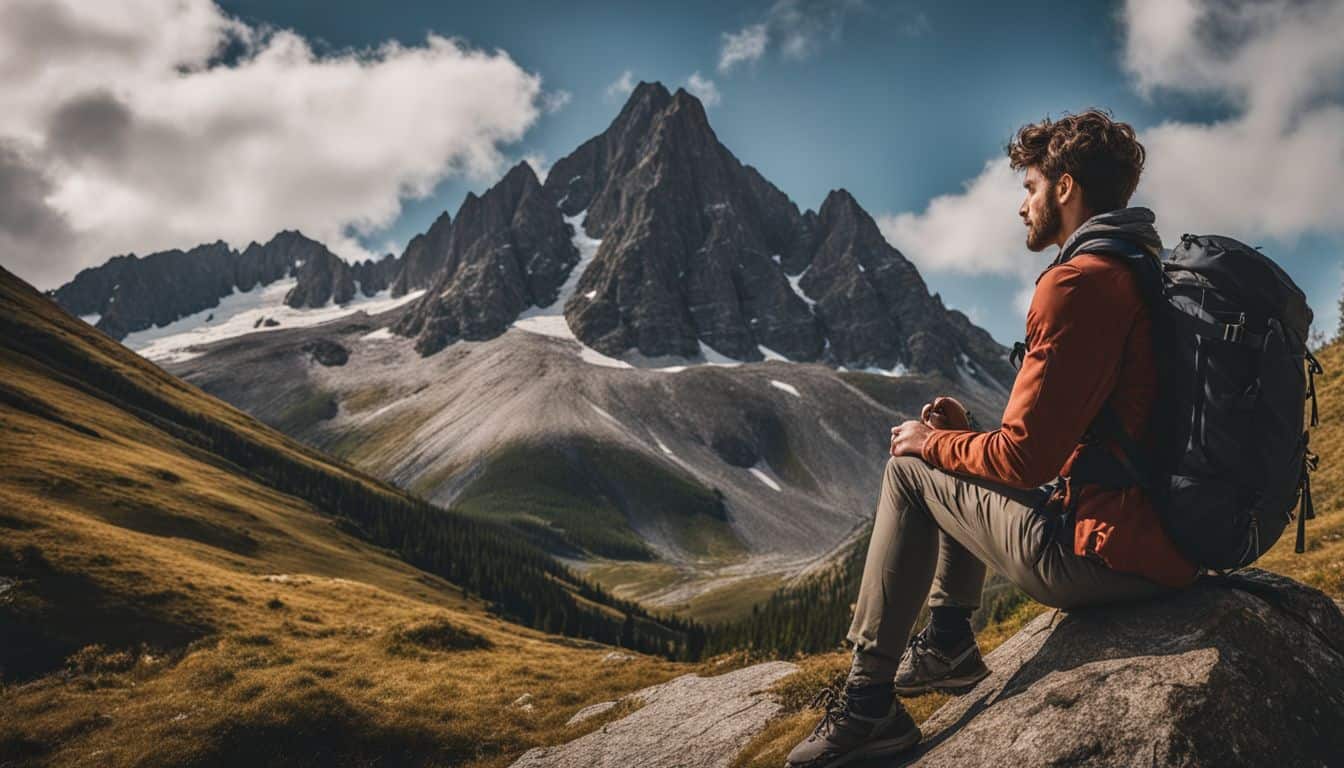
When it comes to hiking food and nutrition, there are a few important things to keep in mind. First, you want to make sure you’re fueling your body properly for the demands of hiking.
This means eating enough calories and choosing nutrient-rich foods that will give you energy throughout your hike. Second, hydration is key. It’s important to drink plenty of water before, during, and after your hike to stay hydrated and avoid dehydration.
Third, balancing macronutrients is essential. You’ll want to consume carbohydrates for energy, protein for muscle repair and recovery, and healthy fats for sustained energy. By incorporating these principles into your hiking food choices, you can ensure that you have the necessary nutrition to support a successful hike.
Planning and Preparing Backpacking Meals
When planning and preparing your backpacking meals, it’s important to choose lightweight and nutritious foods that will fuel your body for the hike. Meal prepping and portioning can also save you time on the trail, while dehydrating your own meals allows for easy cooking.
Want more tips? Keep reading to discover delicious backpacking meal recipes!
Choosing lightweight and nutritious foods
When planning your backpacking meals, it’s important to choose foods that are both lightweight and nutritious. Opt for portable meals that don’t require much preparation or cooking time.
Seeds and grains, like quinoa or chia seeds, are great options as they provide essential nutrients and can be easily packed. Dried snacks like jerky or trail mix are also excellent choices because they are lightweight and non-perishable.
Additionally, consider packing nonperishable food items such as canned tuna or beans, which offer a good source of protein without taking up too much space in your backpack. Remember to focus on nutrient-dense options that will provide you with the energy you need while keeping your pack weight down.
Meal prepping and portioning
When it comes to hiking, meal prepping and portioning is an important part of planning and preparing backpacking meals. It helps ensure that you have enough fuel for your journey. The goal is to create meals that provide the most calories and nutrition with the least amount of weight.
One way to make things easier is by choosing food that requires little or no preparation. This is especially ideal when you’re exhausted from a long day of hiking. Homemade backpacking meals can be prepared in advance and portioned out for easy on-trail consumption.
So, take some time to plan your meals ahead of time and make sure they are packed efficiently for your hiking adventure.
Dehydrating your own meals
Making your own backpacking meals by dehydrating food has many benefits. First of all, it gives you control over your nutrition and allows you to customize the ingredients according to your personal dietary needs.
You can add the ingredients you want in the quantities you prefer, giving you a meal that is tailored specifically for you. Another great advantage of dehydrating your own meals is that there are limitless options available.
You can choose from a wide variety of fruits, vegetables, meats, and grains to create tasty and nutritious meals for your hiking trips. And let’s not forget about the cost savings! DIY dehydrated meals are much cheaper compared to pre-packaged options, so it’s a budget-friendly choice too.
Backpacking Meal Recipes
In this section, I will share a variety of backpacking meal recipes that are easy to make and pack.
Zero-cook recipes
I love hiking, but sometimes I just don’t want to bother with cooking when I’m out on the trail. That’s why I always have some zero-cook recipes in my backpack. These meals are quick and easy to prepare – no cooking required! In fact, there are 10 favorite no-cook backpacking meal recipes provided in this article.
With these recipes, you can enjoy a delicious and nutritious meal without the hassle of cooking. Whether you’re looking for dehydrated meal recipes, homemade backpacking meals that only require adding water, or vegetarian dehydrated meal recipes, there’s something for everyone.
So next time you hit the trails, consider trying one of these zero-cook options for a convenient and tasty meal on-the-go.
Dehydrated and assembled meals
Dehydrated and assembled meals are a great option for backpacking because they are lightweight, compact, and easy to prepare. When you dehydrate your own food, it reduces the volume by about 10-30% of its original size, making it easier to carry in your backpack.
Plus, homemade meals allow you to customize them according to your dietary needs or preferences. You can also save money by making your own dehydrated meals instead of buying pre-packaged ones.
Knorr Rice Sides is a popular choice for backpackers as it contains all the necessary ingredients in one package. But even if you don’t have a dehydrator, there are still options for making dried meals using an oven or microwave.
Cooking and dehydrating whole meals
I love cooking and dehydrating whole meals for my backpacking trips. It allows me to have complete control over the nutrition in my meals and saves me money. Dehydrating food is a popular method of preserving and preparing meals for hiking because it removes the moisture content, making them lightweight, compact, and easy to carry.
The best part is that I can customize my homemade backpacking meals according to my preferences and dietary restrictions. Planning these meals in advance is crucial for a successful trip because I know exactly what I’ll be eating and can pack accordingly.
Tips for Proper Food Storage
Choose odor-proof storage options to prevent attracting wildlife, organize your food for easy access on the trail, and always adhere to Leave No Trace principles when disposing of waste.
Odor-proof storage options
To keep your food safe and prevent wildlife encounters while hiking, it’s important to use odor-proof storage options. Bears and other animals have a strong sense of smell and are attracted to the scent of food.
Bear lockers are the best option as they are the only storage method that bears haven’t been able to defeat. However, bear lockers may not be widely available in all hiking areas.
One effective alternative is using airtight containers for storing paper-boxed foods. FEMA recommends this method to prevent bears from detecting the scent of packaged foods. Another option is using permeable bags that don’t allow scents to escape but can still be detected by trained dogs.
These bags are lightweight and convenient for backpacking trips.
Organizing food for easy access
When going on a hike or camping trip, it’s important to have easy access to your food. Nobody wants to spend unnecessary time rummaging through their bag for a quick snack. That’s why taking the time to organize your food bag can make a big difference in your hiking experience.
Consider using small, clean containers to store leftovers in the cooler, making them easily accessible if there is still ice. Keep your cooler in a cool place and pack it strategically so that you can quickly grab what you need without unpacking everything.
And don’t forget about snacks! Make sure they are within reach and readily available, so you can refuel on the go without any hassle. By organizing your food for easy access, you’ll streamline your hiking adventure and ensure that hunger doesn’t slow you down.
Leave no trace principles
As a hiking enthusiast, it is important to follow the Leave No Trace principles. These principles are guidelines for responsible outdoor behavior and help protect the environment and wildlife.
By practicing minimal impact practices, such as packing out your trash, staying on designated trails, and respecting wildlife habitats, you can enjoy the outdoors while preserving its natural beauty.
Remember that these principles apply to all outdoor enthusiasts and are meant to minimize our impact on the environment and wildlife. Let’s be stewards of our beautiful hiking destinations by following these ethical outdoor practices.
Considerations for Water Intake
Proper hydration is crucial for hikers to maintain energy levels and prevent dehydration. Learn the importance of staying hydrated on the trail and how to choose a reliable water filter system.
Read more to ensure you have all the necessary knowledge for a successful hiking trip.
Importance of staying hydrated
Staying hydrated is really important when you’re hiking. It helps regulate your body temperature and keeps your joints working smoothly. Drinking enough water also helps prevent infections and can even help with weight loss or management.
Plus, it’s crucial for transporting nutrients throughout your body and promoting overall good health. If you’re an athlete, staying hydrated is especially important because it can improve your performance, keep you from getting hurt, and help you recover faster after a hike.
And here’s a helpful tip: drinking enough water can also help curb your appetite so you don’t mistake thirst for hunger. So remember to drink plenty of water while you’re on the trail!
Choosing a reliable water filter system
When it comes to choosing a water filter system for hiking, there are a few important factors to consider. First, think about the type of system that will be most convenient for you.
There are different styles available, such as pump filters, gravity filters, squeeze filters, straw filters, and bottle filters. Each has its own pros and cons in terms of weight, packability, flow rate, and ease of use.
Next, consider the maintenance required for the filter system. Some systems require frequent cleaning or replacement of cartridges, while others may need backflushing or occasional sanitizing.
It’s important to choose a system that fits well with your lifestyle and preferences.
Another crucial factor is water quality standards and filtration capabilities. Look for a filter that meets industry standards for removing bacteria (like E.coli), protozoa (like Giardia), and other harmful microorganisms from water sources.
Energy-Boosting Snacks and Supplements
Fuel your body for maximum endurance on the trail with energy-boosting snacks and supplements. From high-energy snacks to natural sources of electrolytes, these tips will help keep you going strong.
Read more for all the details on how to power up your hikes!
High-energy snacks
When it comes to hiking, having high-energy snacks is important to keep you fueled and energized throughout your journey. Trail mix is a great option as it combines nuts, dried fruits, and sometimes chocolate or seeds for a tasty and nutritious snack.
Dried dates are another energy-boosting snack that provide natural sugars for quick bursts of energy. Bacon and cheese can also be packed as high-energy snacks due to their protein content.
If you’re looking for something crunchy, consider packing beef jerky or almonds which are both protein-rich options. For those who enjoy spreads, peanut butter is a great choice as it is packed with healthy fats and provides sustained energy.
Energy bars and trail mix bars can also be easily carried in your backpack for quick snacking on the go. Cashews and pumpkin seeds are additional nuts that provide plenty of calories per serving, making them excellent choices for boosting your energy levels during hikes.
Supplements for endurance
Supplements for endurance can give you the extra boost you need during long hikes. These supplements come in the form of bars or drinks that are packed with high-grade carbohydrates, vitamins, nutrients, and electrolytes.
They provide a quick source of energy to keep you going on the trails. Some popular options include energy-boosting snacks like sports nutrition bars and nutrient-dense snacks. Electrolyte replenishing drinks can also help maintain hydration levels, especially when hiking in hot weather.
Probiotic supplements are another great choice, as they support a healthy digestive system and can be beneficial for travel and hiking nutrition. Taking these supplements along with a balanced diet will ensure optimal nutrition for your ultra-endurance activities.
Natural sources of electrolytes
When it comes to hiking, it’s important to stay properly hydrated and maintain electrolyte balance. Luckily, there are many natural sources of electrolytes that can help you replenish your body while on the trails.
Vegetables like broccoli, kale, and spinach are rich in electrolytes like calcium and magnesium. Fruits such as bananas, prunes, papaya, and dried apricots are packed with potassium, another essential electrolyte.
Avocados are a great option too because they contain potassium as well as other electrolytes. And if you’re looking for a quick fix during your hike, pickle juice can provide an instant boost of electrolytes.
Food Safety and Hygiene
Properly storing and handling food, as well as practicing good hygiene, is essential to prevent illnesses while hiking.
Proper food handling and storage
When it comes to hiking, proper food handling and storage are very important for keeping your food safe and preventing any illnesses. I always make sure to store leftovers in small, clean covered containers in the cooler.
It’s also crucial to keep the cooler in a cool place to maintain the safety of the food. Leftover food is only safe to eat if there is still ice in the cooler. So, remember to prioritize food safety by practicing good hygiene and storing your meals properly while out on the trails.
Safe water sources
When hiking or engaging in outdoor activities, it’s important to have access to safe water sources. Depending on fresh water from a lake or stream may not be recommended because it can lead to waterborne illnesses and contamination.
To ensure food safety and hygiene, it is crucial to rely on potable water that has been properly treated and purified. This helps prevent the transmission of harmful bacteria and parasites that can cause diseases like diarrhea, cholera, and dysentery.
Investing in a reliable water filter system is essential for removing pathogens and improving the overall quality of the water you consume during your hiking trips. Remember, safe drinking-water contributes to your overall health and well-being while exploring the great outdoors.
Washing utensils and cookware
When hiking and camping, it’s important to wash your utensils and cookware properly to prevent foodborne illness. Bringing clean platters and utensils is crucial for food safety. Avoid using the same ones that held raw food to serve cooked food, as this can lead to bacterial contamination.
While backpacking, finding water for cleaning can be challenging, but it’s worth the effort. Washing your bowls, spoons, and mugs with hot soapy water helps dissolve oil, grease, and sticky food components while killing bacteria and viruses.
You can also use sand or snow to scour pots before rinsing them with hot water to sanitize cooking utensils while camping. Taking these hygienic practices seriously will ensure a safe and enjoyable outdoor adventure without risking any health issues related to contaminated kitchenware.
Meal Planning for Different Hiking Conditions
Meal planning for different hiking conditions requires considering factors such as cold weather, high altitude, and long distances to ensure that your body is properly fueled and nourished throughout the hike.
Cold weather hiking
For cold weather hiking, it’s important to plan your meals carefully. You need extra calories to stay warm and keep moving in the cold. Carbohydrates are a good source of energy, providing about 100 calories per ounce on average.
So make sure to pack foods like trail mix, energy bars, and instant oatmeal. Remember to wash your hands before and after eating for proper hygiene during camping or multi-day trips.
High-altitude hiking
High-altitude hiking requires careful meal planning to meet the unique nutritional needs of mountaineers and trekkers. When hiking at high altitudes, it is important to consume high-protein foods during each meal.
These protein-rich foods provide the necessary energy for the demanding physical activity and help in muscle recovery. Additionally, carbohydrates play a crucial role in high-altitude hikes as they support the production of adrenaline, noradrenaline, and cortisol needed for optimal performance.
Consuming more carbohydrates around workouts at high altitudes is essential. It’s also important to include foods that can prevent or reduce the risk of high altitude sickness when planning meals for these challenging hikes.
Proper meal planning tailored to different hiking conditions will ensure success and enhance your overall performance on your high-altitude adventure.
Long-distance hiking
Long-distance hiking is an exciting adventure that requires careful meal planning to ensure you have enough energy for the journey. When you’re hiking long distances, it’s important to plan your meals in advance and pack foods that are lightweight but packed with nutrients.
Additionally, make sure to include a good balance of carbohydrates, protein, and healthy fats to fuel your body properly. Remember to stay hydrated by drinking plenty of water and consider investing in a reliable water filter system.
Long hikes can be physically demanding, so it’s essential to take care of your body by eating nutritious meals and snacks along the way.
Conclusion on Hiking Food And Nutrition
In conclusion, proper hiking food and nutrition are crucial for a successful outdoor adventure. By fueling your body with the right mix of carbohydrates and protein, staying hydrated, and planning nutritious meals, you can boost your energy levels and endurance on the trail.
Remember to pack lightweight, easy-to-prepare foods that provide essential nutrients without requiring refrigeration. So grab your backpack and enjoy your hike with confidence knowing that you’ve got the ultimate tips for success in your back pocket!
FAQs on Hiking Food And Nutrition
1. What are some good hiking food options?
Good hiking food options include trail mix, energy bars, dried fruits, nuts, jerky, peanut butter sandwiches, and granola.
2. How much water should I carry when hiking?
It is recommended to carry at least 2 liters of water per person for a day hike. Adjust the amount based on the duration and difficulty of the hike as well as weather conditions.
3. Why is it important to eat nutritious food during a hike?
Eating nutritious food during a hike provides essential energy and nutrients to sustain physical activity and prevent fatigue. It helps maintain stamina and supports overall health while on the trail.
4. Can I bring perishable foods on a multi-day hike?
Perishable foods are not recommended for multi-day hikes as they can spoil quickly without refrigeration. Opt for non-perishable options like dehydrated meals or canned goods that won’t spoil easily.
5. Are there any special dietary considerations for hiking?
If you have specific dietary restrictions or allergies, it’s important to plan your meals accordingly before going on a hike. Pack foods that meet your dietary needs and preferences to ensure you stay nourished throughout the trip.

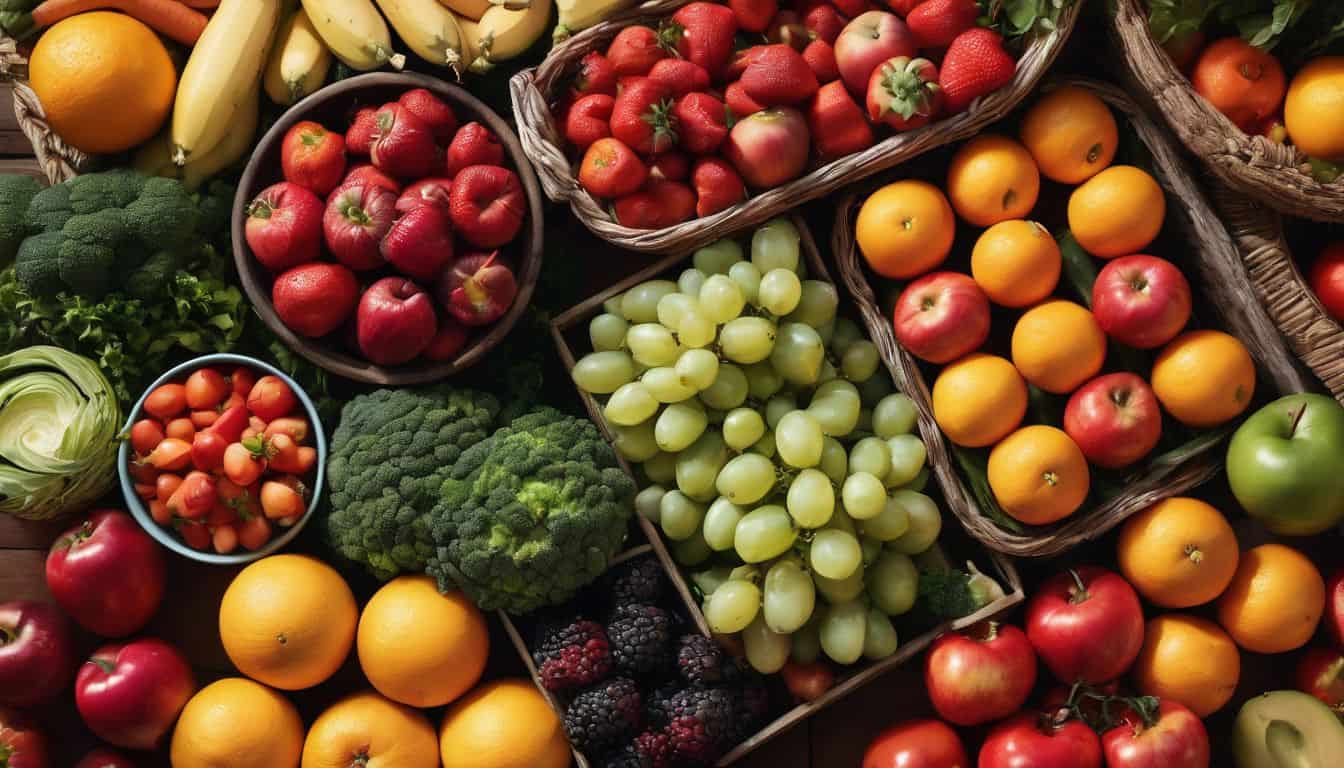
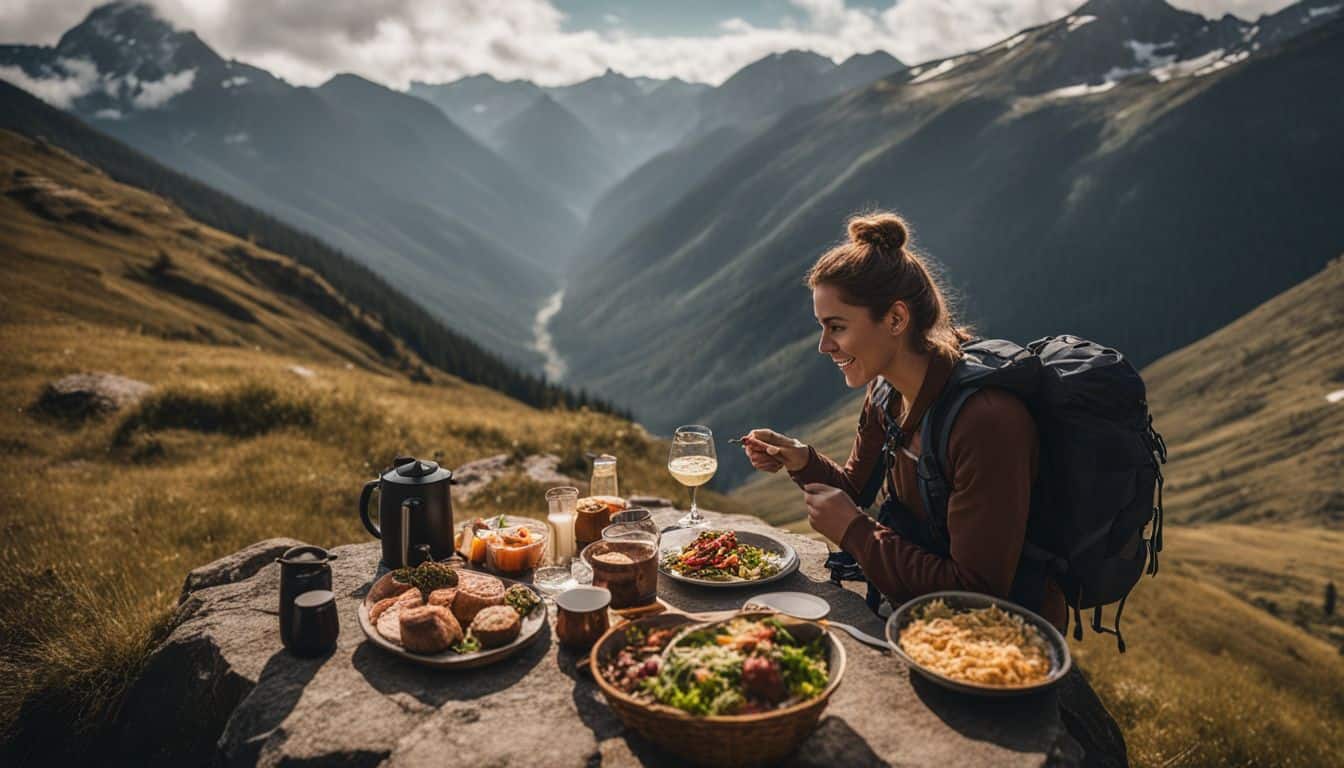
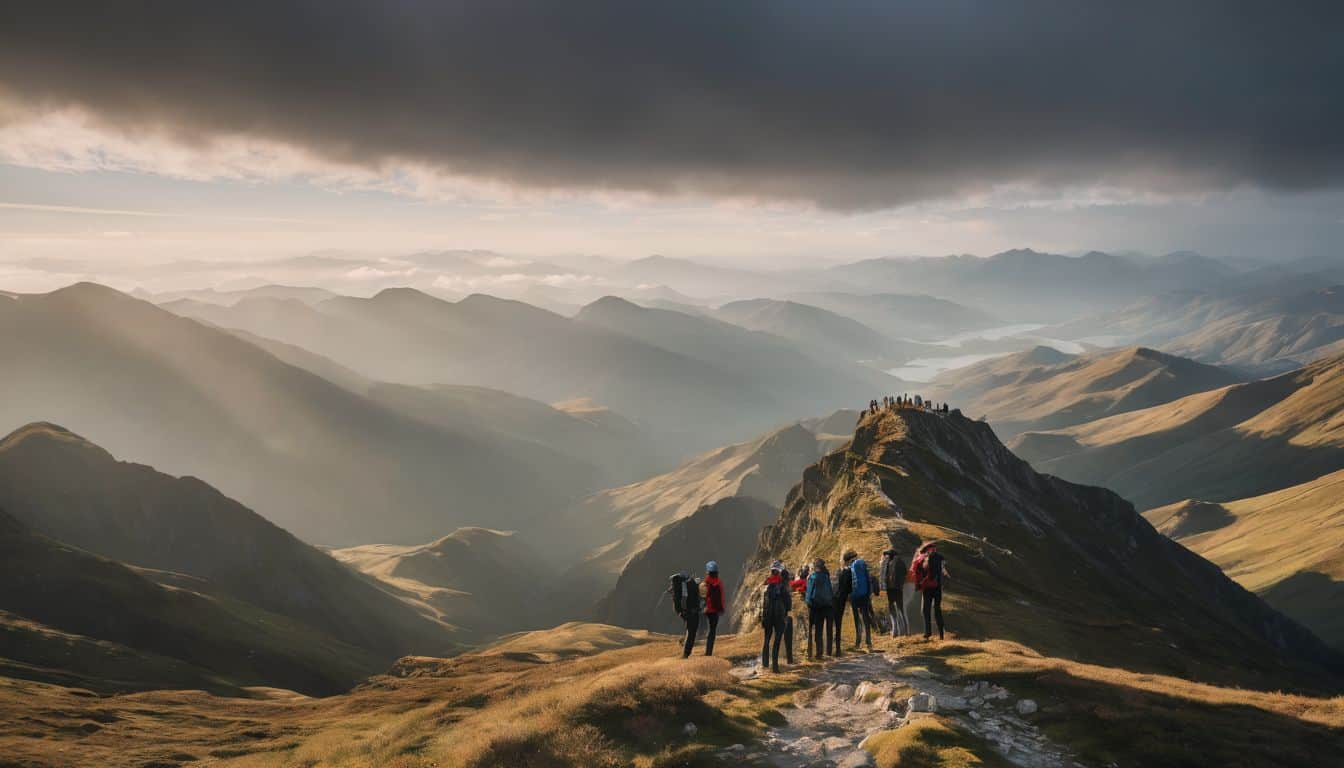
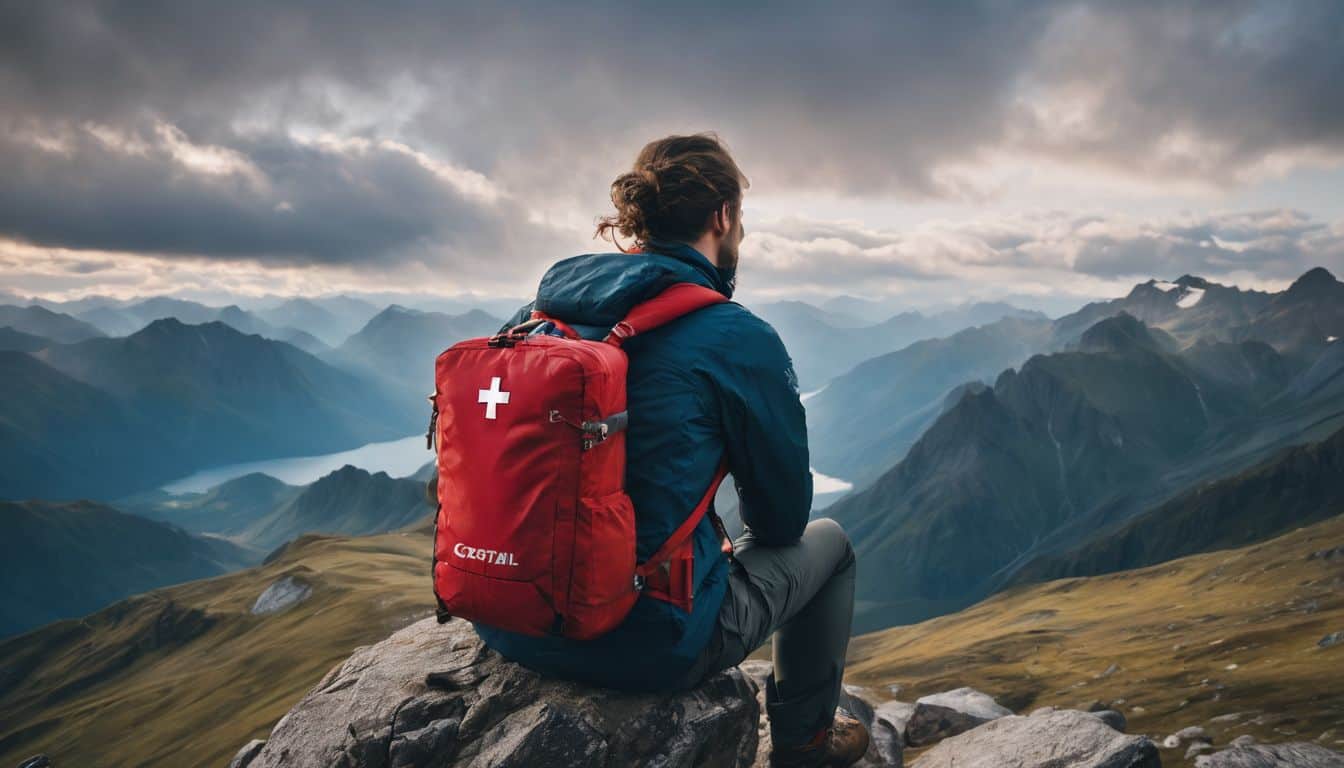
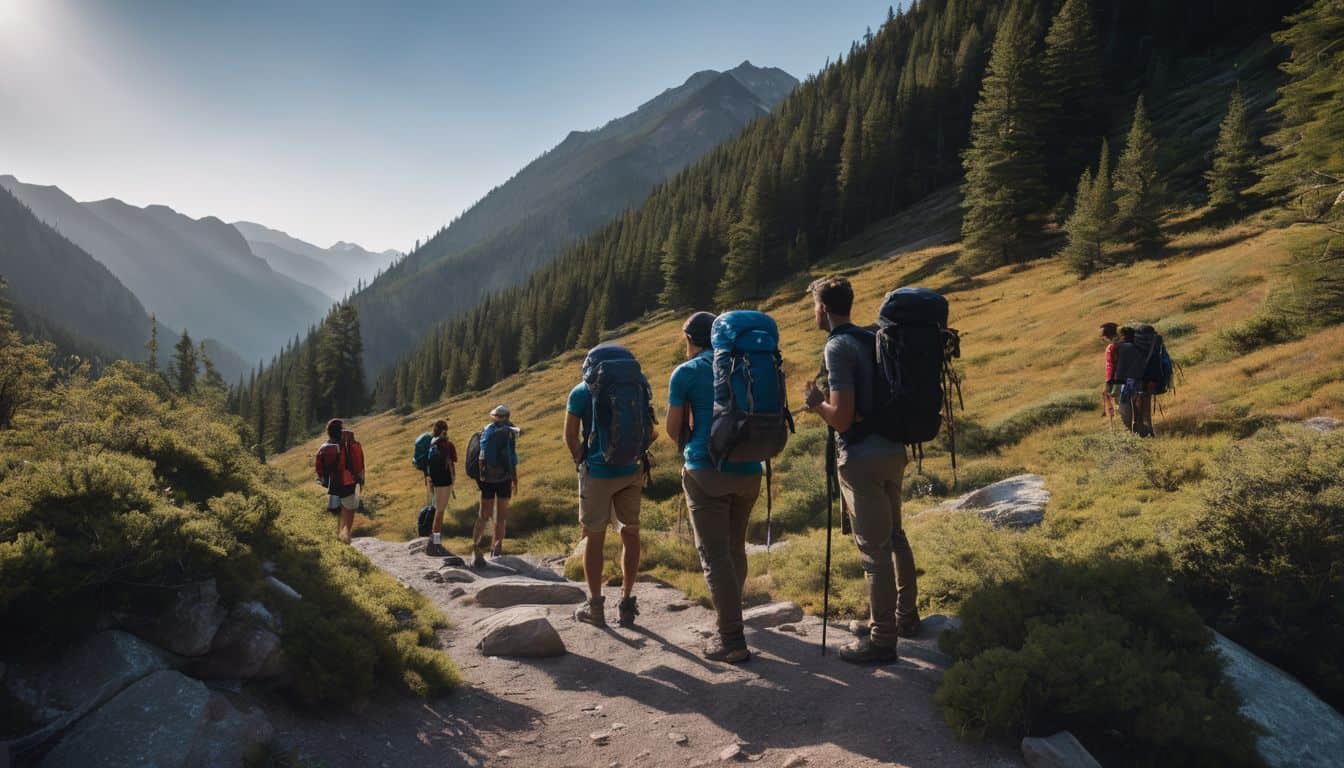
Leave a Reply